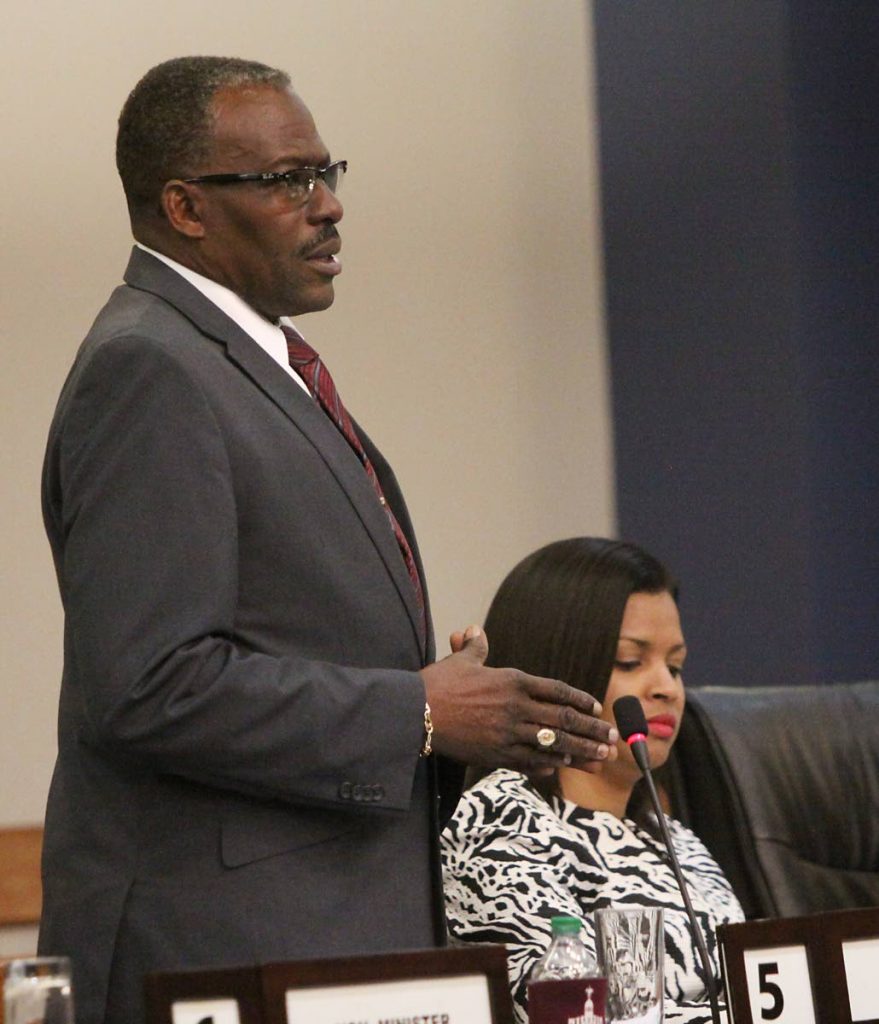Dillon: Focus on guns, hotspots

National Security Minister Edmund Dillon says a doubling of the Homicide Investigative Department and the establishment of the DNA database are some of the measures to address the murder detection rate in TT.
Dillon was responding to a question in Parliament on Friday on plans to reduce the projected annual murder rate given that, so far, 343 people have been murdered this year; a number that is projected to increase to 487 people by the end of 2017.
Dillon said a co-ordinated and targeted approach would be used. He said the Trinidad and Tobago Police Service (TTPS) has increased its focus on violent criminal offenders across all locations in TT and the focus had been the assessment of violent crime hotspots.
He said police were using all available human and other resources for the purpose of ensuring that violent crimes, especially murders, were effectively reduced by year’s end.
He also said police would continue to intensify their efforts to remove illegal arms, ammunition, and narcotics from the street and, as at November 15, they had seized 897 illegal firearms, 12,736 rounds, 76.5 kilograms of cocaine and 1,023 kilograms of marijuana. He said gun-related matters were high priority as 76 per cent of all murders were committed with guns.
“As a result, there is an increased focus on firearm offenders with a high emphasis on prosecution which leads to conviction.”
In a separate question he was asked about measures in place to protect women, elderly and children following the murders of 43 women, 17 children and 22 pensioners as at September 2017.
In response, Dillon said those measures involved a mitigated strategy that included a co-ordinated multi-faceted approach involving all arms of National Security. He said there would also be deeper collaboration among the Judiciary, the Police Service and the Prison Service, rather than those major institutions operating in silos. He also said the measures implemented to assist in reducing the current murder rate involved strengthening human resources, use of modern technology and intensified operations by law enforcement and defence agencies.
He said police have instituted several initiatives to strengthen the four main anti-crime pillars of prediction, deterrence, detection and prosecution.
Dillon reported that the manpower of the Homicide Investigative Department had been doubled and officers attached to the unit had benefited from basic investigative techniques and advanced investigative techniques. He also reported that technology software had been introduced to aid in the management of homicide investigations and the Cold Case Unit had also been strengthened with the addition of extra officers “who have distinguished themselves as investigators, to aid in addressing in outstanding investigations.”
Dillon said a DNA database was currently being established and a DNA custodian had been hired by the National Security Ministry. He said the DNA register would begin building the database with samples from the entire prison population and law enforcement officers to give a better chance of detection, prosecution and conviction.
He also said the police have initiated key activities such as community policing, media collaborating with stakeholders and partnering with communities which would play a critical role in the strategy to maintain safety and security across TT.


Comments
"Dillon: Focus on guns, hotspots"